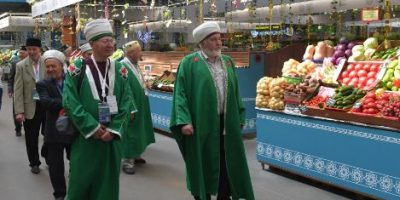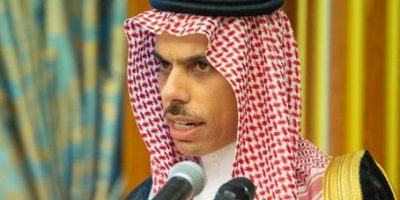Cooling of rhetoric would suit all parties affected by Turkey-US spat

The rapid depreciation of the Turkish lira kept global markets aghast over the last few days. The currency had lost more than 45 percent of its value against the US dollar since the beginning of the year. The most recent, very steep downward trajectory had partially political reasons.
When Turkish President Recep Tayyip Erdogan refused to release American pastor Andrew Brunson, US President Donald Trump acted swiftly by putting two Turkish government ministers under sanctions and doubling the tariffs on Turkish steel and aluminum.
The lira went into free-fall and Erdogan reacted by writing an op-ed. He mentioned Turkey’s 65-year-old membership of NATO and the fact that Turkey had stood “shoulder to shoulder” with its NATO allies in many conflicts.
He went on to declare that Turkey could look for “friends and allies” elsewhere, in reference to its friends to the east, namely Russia, China, Qatar and Iran.
The US government did not wait long to respond. There were harsh words from US National Security Adviser John Bolton and the administration put on hold a law permitting the export of F-35 fighter jets to its NATO ally.
Here is why Erdogan believes he can build new alliances: Turkey is a participant in the Chinese One Belt One Road project, which has helped deepen its ties to Beijing.
It is also a dialogue partner of the Shanghai Cooperation Organisation, of which both Russia and China are members and Iran is an observer.
Turkey has also stood by Qatar since the beginning of its now year-long boycott by several Arab states. This has helped deepen the economic ties between the two countries. Since June of 2017, it is hard to overlook the presence of Turkish businessmen in the tiny Gulf state.
Qatar’s QNB also has the biggest exposure to Ankara of any bank in the Gulf; it was therefore not surprising that Qatar injected $15 billion into Turkey on Wednesday night.
Turkey’s relationship with Russia reached a low point when the Turkish Air Force downed a Russian fighter jet in November 2015. Since then, things have recovered.
In 2017, Russians were the biggest contingent of tourists in Turkey with 4.7 million arrivals, followed by Germany’s 3.6 million. Also last year, Turkey even signed a deal with Russia to purchase the S-400 air defense system.
This must have been a thorn in the side of NATO generals, particularly the US, when its easternmost partner in the alliance turned to its main rival for the purchase of weaponry.
Conveniently, Russian Foreign Minister Sergey Lavrov was on a scheduled visit to Ankara at the height of the currency crisis. There were many things to discuss, including a nuclear power plant and the TurkStream gas pipeline — a joint Turkish-Russian (Gazprom) venture that has replaced the South Stream project and will transport gas to Bulgaria and Greece and later extend further into southeastern Europe.
There was also Syria, where Russia will want to coordinate with Ankara on Idlib, which borders Turkey and where the Turks have been instrumental in assisting the formation of a “national liberation army.”
The Assad regime and the Russians want to gain control over Idlib, but neither side wants to see matters escalate into an armed conflict between Turkey and Syria.
Turkey’s current problems are economic and, amongst its new potential allies, only the Chinese ultimately have sufficient financial firepower to help, though they may lack the willingness to do so.
Russia’s economy is suffering under the sanctions regime; the only thing they could do is offer preferential pricing on gas. Iran is in no position to support Turkey as its own economy is in free-fall due to sanctions. Qatar’s help offers temporary respite, but is still much too little in light of Turkey’s overall capital requirements.
In the end, Turkey would be well advised to stick with its ally of 65 years, while the country’s ties to Europe are also strong: Germany, the UK, Italy and the US, which are all members of NATO, are among its top six destinations for exports.
The country’s biggest trading partner as a whole is the EU, accounting for more than a third of exports. European tourists are important too. While Russians accounted for the biggest numbers in arrivals, they were still significantly fewer than overall arrivals from Europe in terms of numbers as well as value.
‘Turkey’s current problems are economic and, amongst its new potential allies, only the Chinese ultimately have sufficient financial firepower to help’
Millions of Turkish citizens have lived for generations in Germany, Austria, the UK, the Netherlands and other Western European countries.
In Austria, they represent the biggest minority of people holding a foreign passport. The people-to-people ties with these countries have grown over the past generations; they are economic and cultural.
The Eurovision Song Contest is a good litmus test for grassroots cultural ties and Turkey always gets the most votes from Germany and vice versa, irrespective of how the two governments feel about each other.
Lastly, we should not forget the vital role Turkey has played in the latest migration crisis. The country is housing and feeding more than three million Syrian refugees against the promise of financial support from the EU to the tune of €6 billion ($6.8 billion).
Europe and Turkey have geographic proximity and economic and cultural ties; hence they have every interest in good relations.
The same holds true for NATO: Turkey represents its easternmost border to the war-torn and conflicted Middle East, as well as to its traditional nemesis Russia. Given the increased Russian presence in Syria and beyond, it is surely in NATO and the US’ interest to keep Turkey sweet.
In the same vein, Turkey can probably look to more selfless economic assistance from its Western allies than from anyone else.
It is time for Erdogan, Trump, Bolton and Co. to cool the rhetoric and consider where the long-term interests of their countries lie.
The Europeans would do well to help with such a rapprochement, as it is in their interest as well. The latest telephone conversations between Erdogan and Germany’s Angela Merkel and France’s Emmanuel Macron are a step in the right direction.
Related News

The largest halal fair in Russia will open on 14 MAY
ISLAMABAD, /DNA/ – More than 40 thousand visitors and 4.5 thousand goods according to HalalRead More

Saudi Foreign Minister to visit Pakistan
DNA ISLAMABAD: A high-level Saudi delegation, led by Foreign Minister Prince Faisal bin Farhan binRead More


Comments are Closed